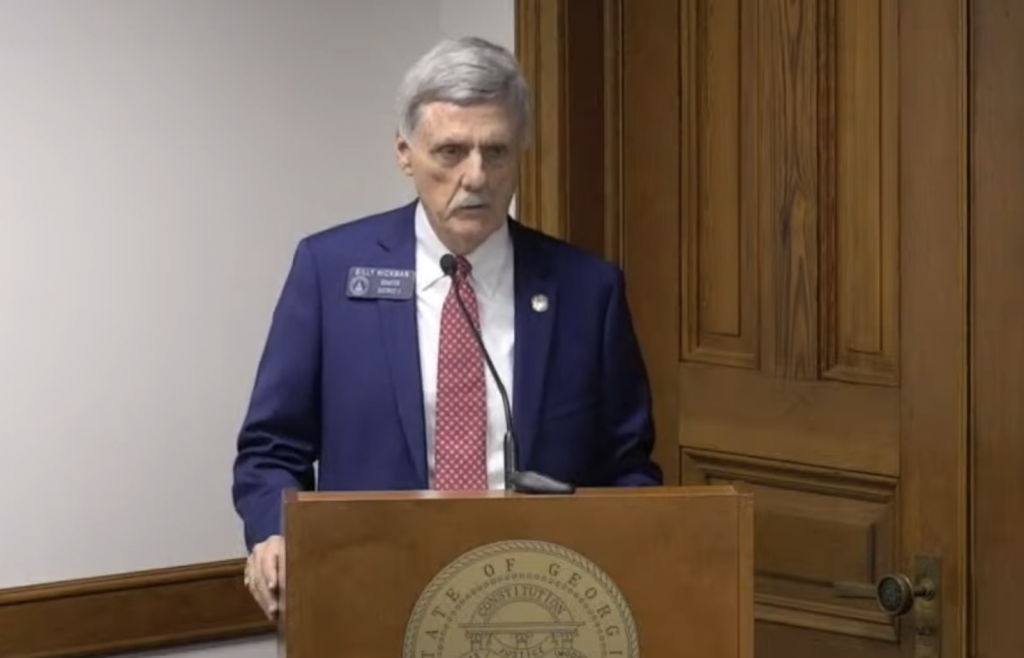Georgia Lawmakers Hear Pros and Cons of Legalizing Horse Racing and HHR
Posted on: February 21, 2022, 04:53h.
Last updated on: February 21, 2022, 10:26h.
A Georgia state senate committee on Thursday heard testimony on the impact – economic and societal – introducing horse racing would have on the state.

The Senate Committee on Regulated Industries and Utilities is currently considering several bills that call for a constitutional amendment. The new law would allow racing and pari-mutuel betting, and determine how the sport would operate in the state.
Senate Bill 30 would establish a Georgia Horse Racing Commission, and that regulatory body would be empowered to award licenses for as many as three racetracks. The bill also calls for the tracks to be at least 125 miles apart from each other.
The minimum investment required for a track in the Atlanta area would be $250 million, while that threshold is $125 million elsewhere in the state. The goal would be for each track to offer at least 60 racing days per year.
According to a study by researchers at Georgia Southern University, legalizing horse racing would generate a nearly $1.3 billion economic impact and create 15,800 new jobs in the Peach State. That would also include rural jobs, as proponents see opportunities for horse farms and breeding operations.
State Sen. Billy Hickman, R-Statesboro, testified on behalf of the racing bills. While only a sponsor of Senate Resolution 131, one of the constitutional amendments, Hickman is involved in the breeding and racing business. He told his colleagues that in order for racing to succeed in the state, it has to make economic sense, and he found the Georgia Southern numbers to be “pretty astounding,” he said.
No action was taken by the committee on Thursday.
Historical Horse Racing Included in Bill
Hickman also told the committee that while horse racing would work in Georgia, having a supplemental source of revenue would help matters. SB30 includes provisions to allow tracks to also offer historical horse racing (HHR), the slot-like game that uses the outcome of previous races to determine whether the bettor wins.
Kentucky racing and political leaders have pointed to the revenue HHR has generated for racing purses. While the state has always been a hotbed for racing, the gaming machines have made the state’s tracks an attractive year-round market for horsemen.
My personal opinion is that we need some other form (of gaming) to get the quality horses here, to get the Breeders’ Cup here,” Hickman said. “Now, I really believe that the pari-mutuel betting could survive on its own, But you wouldn’t have the quality of races that we would want… We would want these facilities to be the best in the nation, also, and I think you’ve got to have other forms of money to supplement the purses in order to get us there.”
Opponents to gaming who spoke at the hearing seized on those comments, saying that legalizing horse racing is just an attempt to bring in other forms of gaming as well.
Mike Griffin, a spokesman for the Georgia Baptist Mission Board, said HHR parlors at other tracks across the country are set up to look no different than casinos.
“Today, this pig has got lipstick on it, because this is really not about horse racing anymore,” he said.
Georgia a Battleground State for Expanded Gaming
Georgia has been talked up in recent years as a state that’s likely to take on expanded gaming, and proponents aren’t just looking at horse racing.
Presently, only the lottery and some types of charitable gaming are allowed in Georgia. The state’s lottery has also been used to fund a scholarship program that has helped cover higher education costs for more than 2 million Georgia students in the nearly 30 years of its existence.
Lawmakers in Atlanta are also considering allowing casino resorts in the state and legalizing sports betting, with tax revenues going to supplement funding for education.
Earlier this month, state Rep. Ron Stephens, R-Savannah, said the state House would consider a constitutional amendment that would allow the Georgia Lottery to run sports betting in the state.
Related News Articles
British Horse Racing to Get ‘Formula One’ Makeover
Nebraska AG Sues State Racing Commission for Authorizing Historical Racing
Most Popular
Mirage Las Vegas Demolition to Start Next Week, Atrium a Goner
Where All the Mirage Relics Will Go
Most Commented
-
Bally’s Facing Five Months of Daily Demolition for Chicago Casino
— June 18, 2024 — 12 Comments
















No comments yet